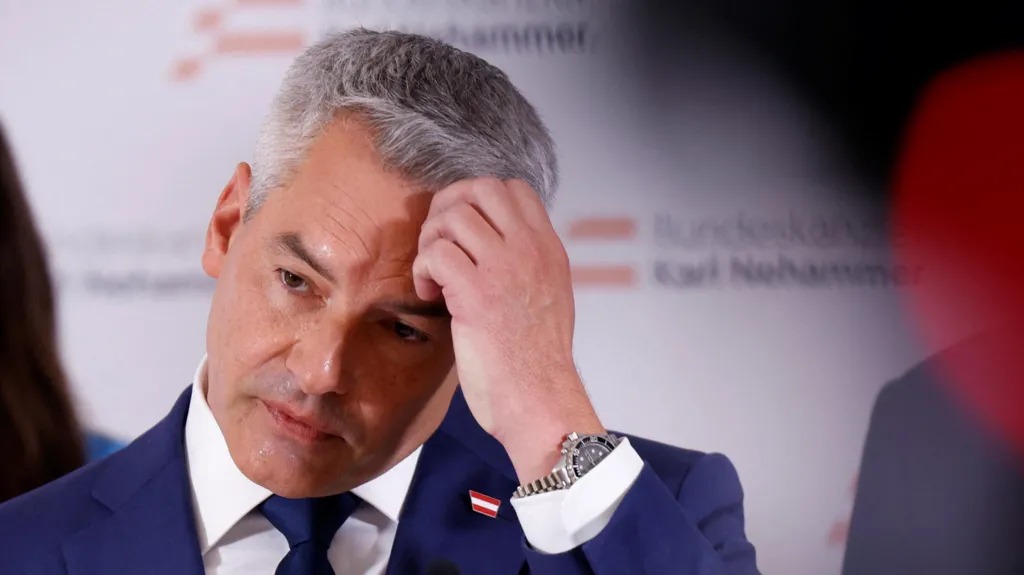
Collapse of Coalition Talks
Failed Negotiations with Key Parties
The ÖVP and Social Democrats struggled to find common ground on critical issues, while the liberal Neos withdrew from discussions entirely.
Key Factors in the Collapse:
- Policy Disagreements: Disputes over migration, asylum, and economic policy stalled progress.
- Far-Right Opposition: Both parties refused to work with the FPÖ, citing its controversial policies and historical associations.
The Role of the Far-Right FPÖ
A Growing Influence in Austrian Politics
The FPÖ emerged as the largest party in the September election, securing nearly 29% of the vote. Its leader, Herbert Kickl, has pushed hardline policies on migration and asylum, promising to build “Fortress Austria.”
Controversial Legacy:
- Nazi Roots: Founded by former Nazis in the 1950s, the FPÖ’s history continues to generate criticism.
- Recent Scandals: Footage of FPÖ candidates at a funeral where an SS song was sung resurfaced just before the election.
Despite this, the FPÖ’s stance on migration and economic issues has resonated with voters, boosting its popularity in recent polls.
What Happens Next?
Potential Scenarios for Austria
The collapse of coalition talks leaves Austria at a political crossroads:
- Negotiations with the FPÖ: The ÖVP could enter talks with the far-right party despite previous refusals.
- New Elections: Analysts suggest fresh elections may be called, which could strengthen the FPÖ further.
Impact on Austrian Politics:
The failure to form a coalition has triggered criticism from the FPÖ, which blames President Alexander Van der Bellen and Social Democrat leader Andreas Babler for the impasse.
Election Context
Key Issues Dominating the Election
The September election saw high voter turnout as Austrians grappled with:
- Migration and Asylum: The FPÖ capitalized on public concerns, promoting strict immigration rules and “remigration.”
- Economic Challenges: A slowing economy and the war in Ukraine dominated debates.
The FPÖ’s hardline stance on these issues helped secure its historic victory.
Chancellor Nehammer’s Resignation
A Step Down Amid Political Chaos
Nehammer’s resignation marks the end of his tenure as ÖVP leader and chancellor. In his statement, he acknowledged the failure to form a stable government and hinted at the difficulties of navigating Austria’s polarized political landscape.
Next Steps:
Nehammer’s resignation opens the door for new leadership within the ÖVP, which will play a critical role in shaping Austria’s political future.
Conclusion
Austria’s Political Future at a Crossroads
With Chancellor Nehammer stepping down and coalition talks collapsing, Austria faces a period of uncertainty. Whether the far-right FPÖ gains greater influence or new elections reshape the political landscape, the country’s future hangs in the balance.
External and Internal Links
- External Link: Learn more about Austria’s political system
- Internal Link: Explore the rise of far-right movements in Europe





